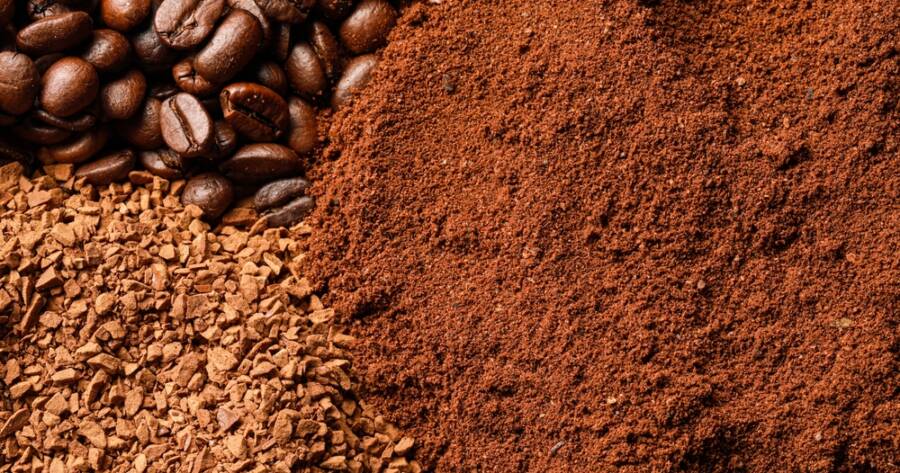Your morning coffee might be doing more than just waking you up. It could also be giving your garden a hidden boost! Used coffee grounds are packed with nutrients, texture, and surprising benefits that can help plants grow, keep pests away, and even improve your soil. Instead of tossing them in the bin, consider putting them to work outdoors. These unexpected tricks make coffee grounds one of the best-kept secrets in low-cost gardening.
Add Nutrients to Your Soil Naturally
Coffee grounds are rich in nitrogen, a key nutrient plants need to grow strong, lush foliage. When added to compost or mixed directly into soil, they slowly release nutrients as they break down. This makes them a great free alternative to commercial fertilizers, especially for vegetables and leafy greens that thrive on nitrogen-rich soil.
They also improve soil texture. Coffee grounds help loosen heavy clay soils and increase water retention in sandy soils. Whether you’re amending a raised bed or revitalizing old potting mix, adding used grounds can give your soil structure a noticeable upgrade without any chemicals.
Use as a Natural Pest Deterrent
Slugs, snails, and even some types of ants don’t love the texture or smell of coffee grounds. Sprinkling used grounds around the base of plants can create a mildly abrasive barrier that discourages pests from crossing. It’s a non-toxic way to protect your tender greens and flowers–no harsh sprays required.
For even more effectiveness, combine coffee grounds with crushed eggshells for a double-whammy defense. Just be sure not to pile them too thickly; a thin layer is best to avoid blocking water and air from reaching the soil. Bonus: the scent may even keep curious cats from using your garden as a litter box.
Enhance Your Compost Pile
If you’re already composting, coffee grounds are a powerful addition. They’re considered a “green” compost material, meaning they’re rich in nitrogen and help balance out “brown” materials like dry leaves or cardboard. Adding coffee grounds speeds up the decomposition process, especially when mixed well with other kitchen and yard waste.
Don’t forget the filters! Most paper coffee filters are compostable too. Just tear them up before adding them to help them break down faster. Between the grounds and the filters, your morning brew can help transform your food scraps into rich, garden-ready compost faster than you might think.
Make a Mild Fertilizer Tea
Coffee grounds can also be used to make a liquid fertilizer. Simply steep about a cup of used grounds in a gallon of water overnight. The resulting “coffee ground tea” is a nutrient-infused solution you can pour directly onto your garden soil or use to water potted plants.
This mild fertilizer is especially helpful for acid-loving plants like azaleas, blueberries, and roses. It delivers a gentle nutrient boost while helping improve the soil’s acidity over time. Be careful not to overdo it—once a week is plenty for most plants, and always test with small amounts first to see how your garden responds.
Feed Your Worms
If you compost with worms (vermicomposting), they’ll be thrilled to snack on used coffee grounds. Worms are drawn to the gritty texture, and the grounds help them break down other materials more efficiently. Just like in traditional composting, coffee adds nitrogen and balances out drier waste.
That said, moderation is key. Worms love coffee, but too much at once can throw off the pH of their environment. Mix grounds with fruit peels, veggie scraps, and shredded paper to keep their home well-balanced. A happy worm bin means faster compost for you, and healthier soil for your garden.
Deodorize Your Garden Tools and Compost Bin
Coffee grounds don’t just benefit your plants, they can also help keep your gardening space smelling fresh. Thanks to their natural deodorizing properties, coffee grounds absorb and neutralize odors. Rinse your hands with them after working with compost or fish-based fertilizers to remove lingering smells.
You can also toss a handful into the bottom of your compost bin or garden tool bucket to soak up unwanted odors. The gritty texture helps scrub tools clean, and the grounds themselves break down naturally, making them a multi-tasking solution for keeping your workspace tidy.
Brew Up a Greener Routine
Using coffee grounds in your garden is an easy, eco-friendly way to make the most of something you’re already throwing away. From feeding your soil to repelling pests and even cleaning your tools, these weirdly smart uses add up to real impact.
The best part? No special equipment, skills, or extra money required. Just sip, save, and sprinkle your way to a healthier, more vibrant garden–one coffee at a time.

